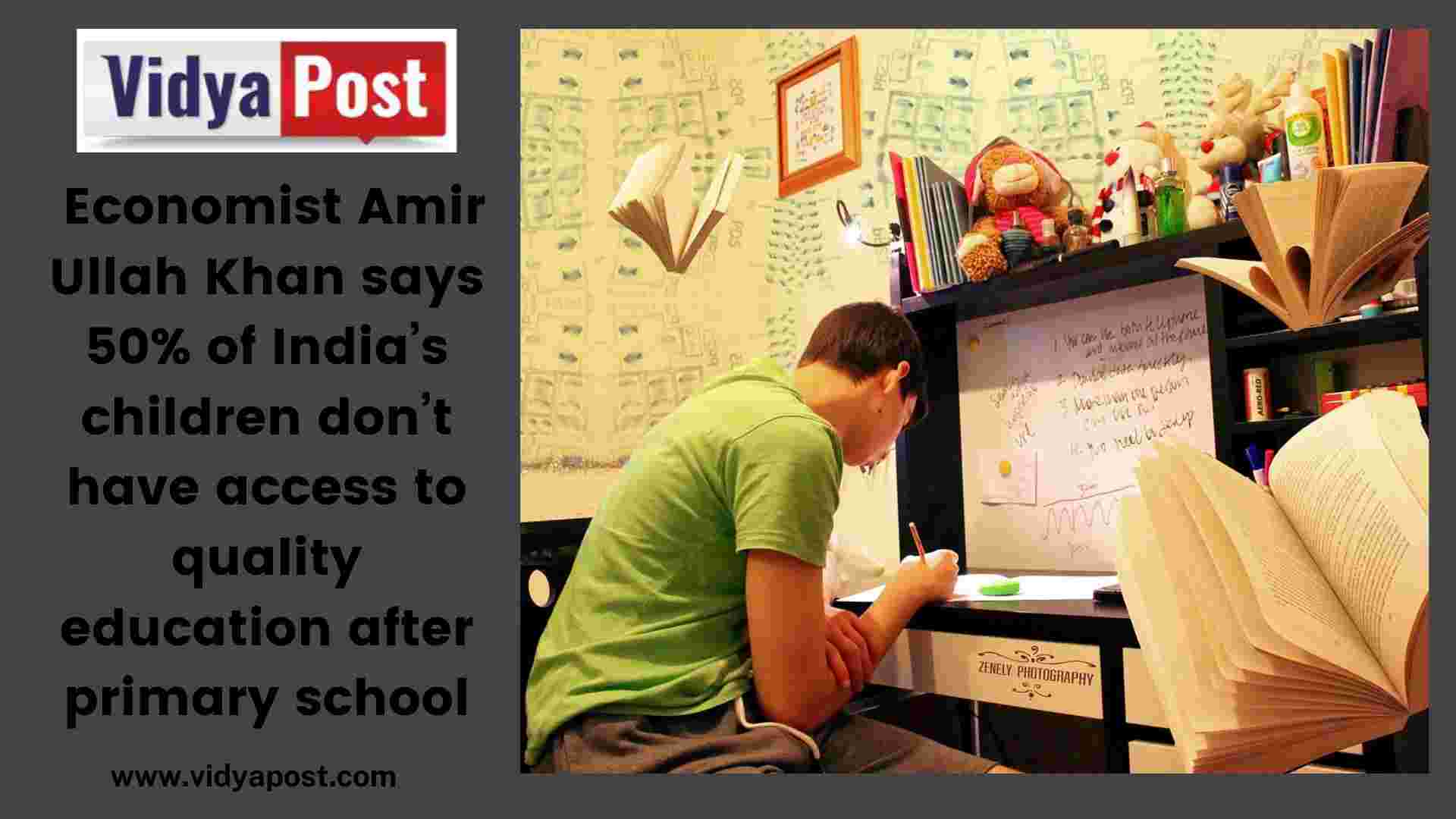Economist Amir Ullah Khan says 50% of India’s children don’t have access to quality education after primary school

Beyond the gleaming skyscrapers and bustling tech hubs, a hidden crisis grips India: access to quality education. Development economist Amir Ullah Khan, in a stark wake-up call, revealed that a staggering 50% of Indian children lack access to quality education after primary school, a reality often invisible to the privileged.
50% of India's children stumble after primary school. What did economist Amir Ullah Khan say.
Speaking at the launch of the Hyderabad Institute of Excellence (HIE), a beacon of hope for underprivileged students, Khan painted a poignant picture of the struggles faced by countless families. Crammed into single rooms, lacking basic utilities, the very notion of education becomes a luxury for many. This isn't just about textbooks and technology; it's about battling the shackles of poverty and limited resources.
Khan's message resonated with urgency, aimed not only at policymakers but also at the privileged. He urged them to shed their "snobbery" and develop empathy for those struggling to climb the educational ladder. The complacency of the well-off, he warned, is a barrier itself.
HIE stands as a testament to the transformative power of education. This charitable trust provides full scholarships and comprehensive coaching to 125 deserving students each year, defying the odds stacked against them. Their success stories, with students securing seats in prestigious institutions like IITs, NITs, and medical colleges, serve as a beacon of hope for others trapped in the cycle of poverty.
Khan's call for empathy is not just about charity; it's about acknowledging the systemic inequalities that perpetuate this crisis. The lack of access to quality education isn't a personal failing; it's a symptom of a flawed system. He urges the privileged to recognize this, to move beyond patronizing gestures and engage in a dialogue that seeks genuine solutions.
The path forward demands more than just scholarships and coaching programs. It requires a critical examination of education policies, resource allocation, and social barriers. It demands a system that caters to diverse needs and learning styles, not one that reinforces existing inequalities.
Khan's voice echoes a clarion call for action. It's a call to bridge the gap between privilege and reality, to acknowledge the struggles of the underprivileged, and to dismantle the barriers that deny them access to quality education. Only then can India truly claim to be a nation of opportunity, where every child has the chance to reach their full potential, regardless of their background.(News Source)
Share:

2 Comments
Jordan Singer
2d2 replies
Santiago Roberts
4d